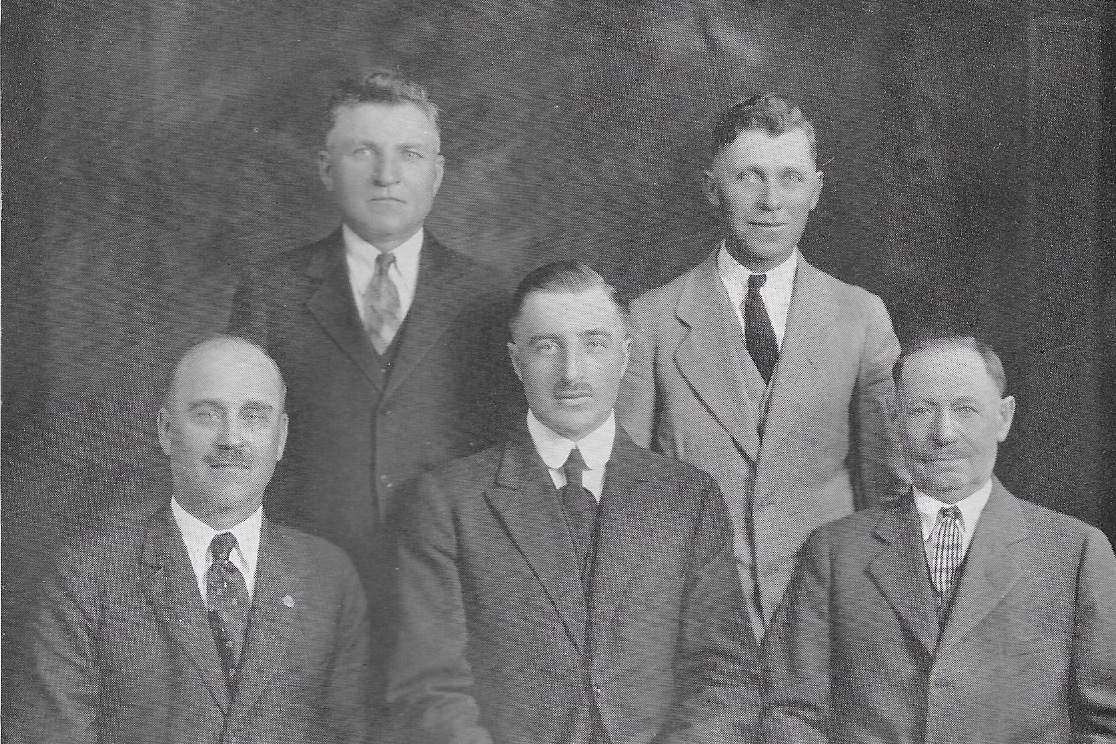This post is part of a series on the history of Peace Presbyterian Church as part of our month-long Centennial Celebration. Visit our Stories from the Past blog page or learn more about Celebration Sunday on October 6th.
Pictured are founding members of First Reformed Church with Pastor Reitzer in 1929. Clockwise, from top left: Jacob Schlothauer, Conrad Heidel, Conrad Koch, Rev. Wm. Reitzer, and John Schneider.
The story of Peace Presbyterian Church (founded as First Reformed Church) stretches back much farther than our 100 year history. It begins in Russia in 1762 during the reign of Catherine the Great. In an attempt to modernize Russia in the wake of the Seven Years War, Catherine issued a manifesto inviting German farmers to settle along the Volga River, offering them interest free loans, religious freedom, and exemption from military service. Around 8,000 German families accepted her offer and emigrated to the east. Though the first several decades were hard for the Volga Germans, eventually they began to thrive in their new country. By 1910, the Volga German population had ballooned to well over half a million people.
First Reformed Church’s original building.
In 1874, the Russian government revoked their promise to exempt the immigrants from military service, sparking another exodus from Russia to the new world, reaching its peak from 1905 to 1915. Many of these migrants travelled to Flint, Michigan to seek employment in the newly founded auto industry. At first, these immigrants to Flint worshipped in their homes, but eventually a group of Lutheran and Reformed Volga Germans decided to begin a church together. With the help of the Reformed Church in the United States, First Reformed Church of Flint, Michigan was founded on July 23, 1919. Two months later, construction on the first church building began on the corner of Buick and Gillespie streets. The building was consecrated by newly called pastor John Schmalz and twenty-three members on New Year’s Eve.
The Volga Germans who stayed in Russia faced increasingly difficult challenges. The Bolshevik Revolution in 1917 and severe famine in 1920 wreaked havoc on them, killing half the population. During Russia’s war with Germany in World War Two, the Volga Germans were exiled to hard labor camps in Siberia and Kazakhstan. After the fall of the Soviet Union, many Volga Germans returned to Germany and Russia, and some remain in central Asia to this day.



